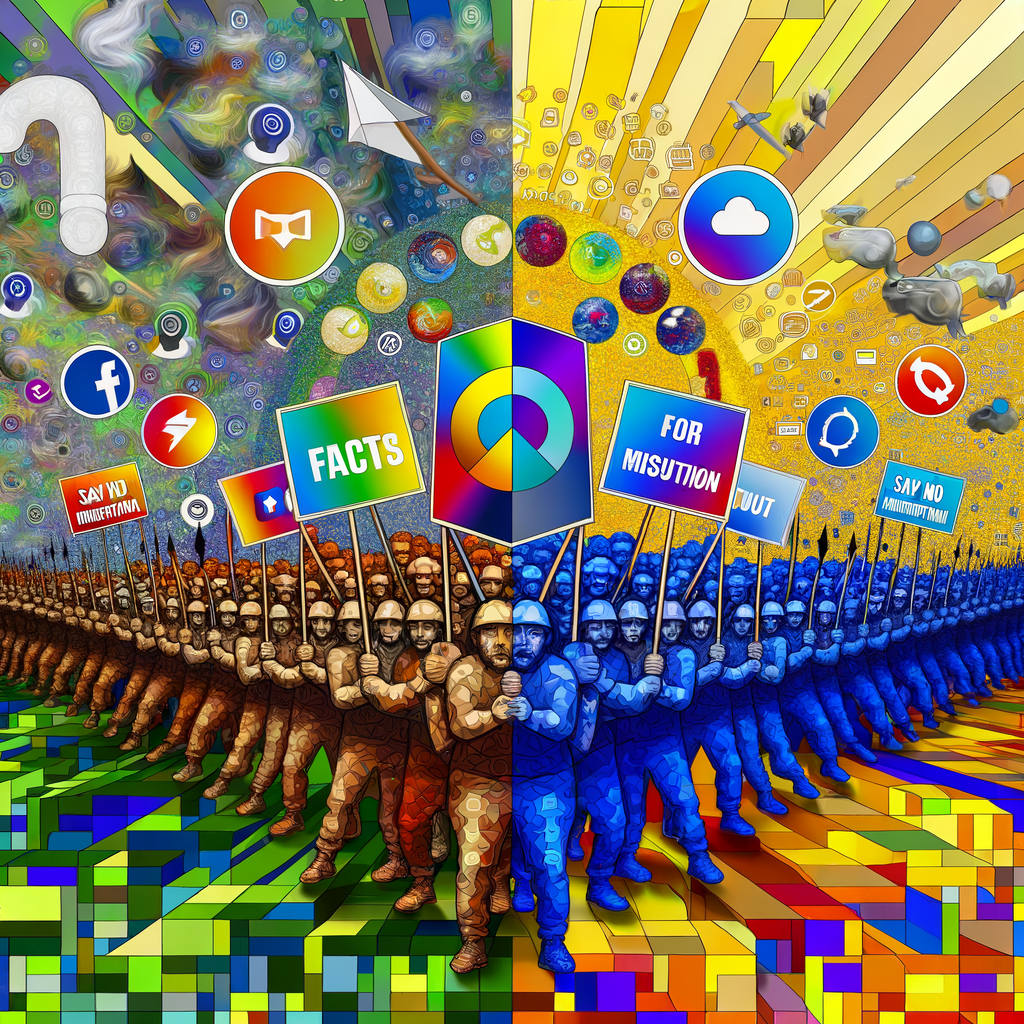# The Rise of the AI Conspiracy Debunker: A New Tool in the Fight Against Misinformation
In an age where misinformation spreads faster than a cat meme on social media, a team of researchers has taken on the Herculean task of developing an AI chatbot specifically designed to debunk conspiracy theories. This innovative approach aims to combat the rampant spread of false information online, but it raises questions about the effectiveness and implications of relying on artificial intelligence for truth-telling.
## Key Points
– A new AI chatbot is being developed to counteract conspiracy theories online.
– The chatbot aims to provide factual information and debunk false claims.
– Concerns arise regarding the effectiveness and potential biases of AI in handling sensitive topics.
– The implications for Jersey and its conservative readership are significant, as misinformation can impact local discourse.
## The AI Chatbot: A Digital Knight in Shining Armour?
The researchers behind this AI chatbot are not just throwing spaghetti at the wall to see what sticks; they are employing sophisticated algorithms and machine learning techniques to sift through the vast ocean of online content. The goal? To provide users with accurate information and debunk the myriad of conspiracy theories that have proliferated in recent years.
But can a chatbot really be trusted to discern fact from fiction? After all, the internet is a veritable Wild West of information, where the line between truth and falsehood is often blurred. The chatbot’s creators argue that by using a data-driven approach, they can offer a more reliable source of information than the average social media post. However, this raises the question: who decides what constitutes “truth”?
## The Potential Pitfalls of AI in Misinformation Management
While the intention behind the AI chatbot is commendable, there are several potential pitfalls to consider. First and foremost, the risk of bias in AI algorithms is a well-documented concern. If the data fed into the chatbot is skewed or incomplete, the information it provides could inadvertently reinforce existing biases rather than debunk them.
Moreover, the chatbot’s effectiveness hinges on its ability to engage users in a meaningful way. If it comes across as overly robotic or dismissive, users may be less inclined to trust its responses. After all, no one likes being told they are wrong by a machine, especially when it comes to deeply held beliefs.
## The Jersey Perspective: Misinformation and Its Local Impact
For the conservative readership in Jersey, the implications of this AI chatbot are particularly relevant. The Channel Islands have not been immune to the spread of misinformation, especially during the COVID-19 pandemic, when conspiracy theories about vaccines and government responses ran rampant.
As a community that values factual discourse, the introduction of an AI tool to combat misinformation could be seen as a positive step. However, it is crucial for local residents to remain vigilant and critical of the information they consume, regardless of the source. The chatbot may serve as a useful tool, but it should not replace personal discernment and critical thinking.
## The Government’s Role: A Critical Eye on Public Funds
As with any new technology, the question of funding arises. How much public money is being allocated to this AI project? Given the Jersey government’s track record of scrutinising public funds, it is essential to ensure that taxpayers are not footing the bill for a project that may not deliver on its promises.
The government must be held accountable for its spending, particularly in an era where economic prudence is paramount. If the chatbot proves to be ineffective or biased, it could lead to further erosion of public trust in both the government and the technology it endorses.
## NSFW Perspective: A Cautious Optimism
In conclusion, while the development of an AI chatbot to debunk conspiracy theories is an intriguing and potentially beneficial endeavour, it is essential to approach it with a healthy dose of scepticism. The effectiveness of such a tool will depend on its ability to engage users, provide unbiased information, and maintain transparency in its operations.
For the conservative readership in Jersey, the introduction of this technology could serve as a valuable resource in the fight against misinformation. However, it is crucial to remain vigilant and critical of the information presented, ensuring that personal discernment is never replaced by blind trust in technology.
As we navigate this brave new world of AI and misinformation, let us remember that the best defence against falsehoods is not just a chatbot, but an informed and engaged citizenry. After all, in the battle for truth, knowledge is power—and a little bit of humour never hurts either.




